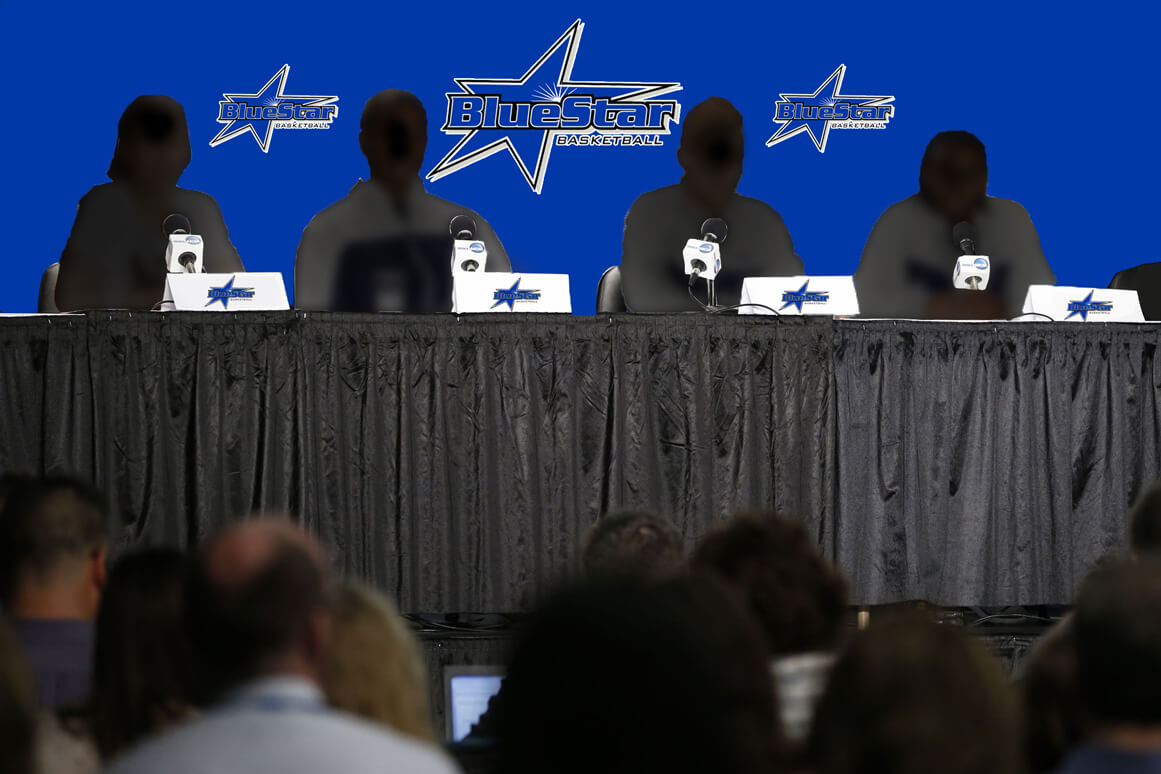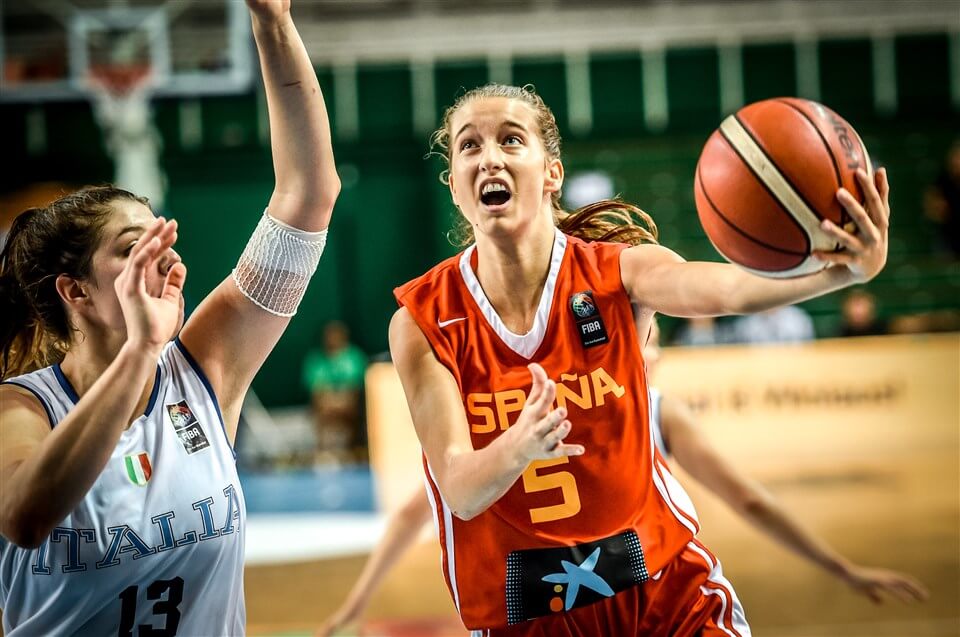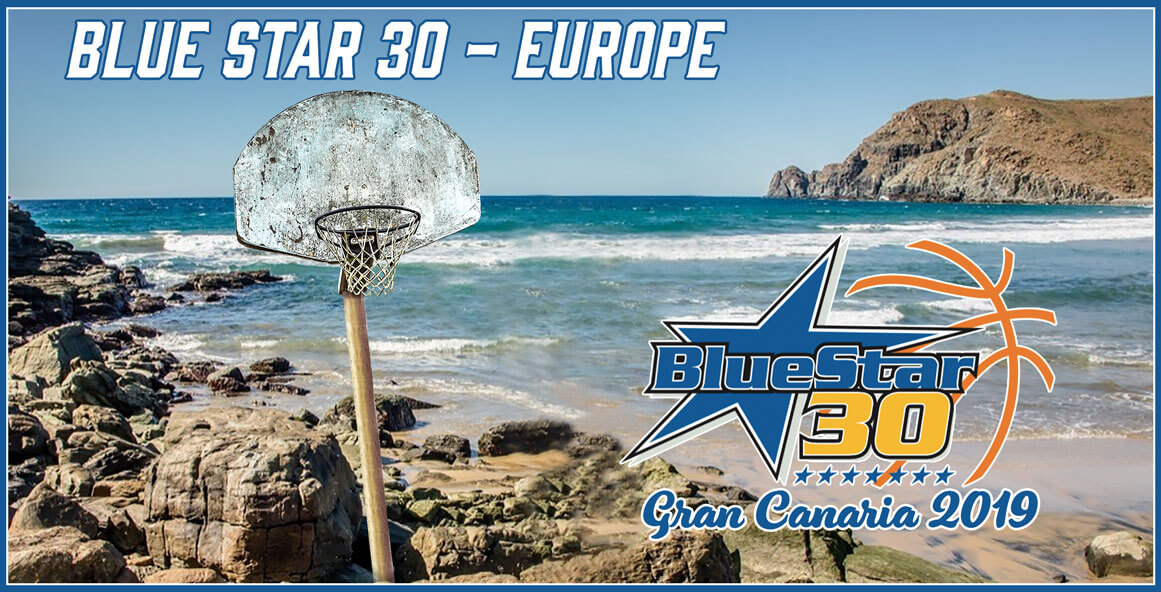What better occasion than FIBA’s U16 Women’s European Championship, where rising stars get their first exposure and where their paths to elite level usually start, to meet with Olympian, France senior NT member, former San Antonio Star, EuroLeague Women player Valériane Ayayi and engage discussion on NCAA enrollment opportunities for top European prospects. Especially as she is someone who had her international debut at this tournament back in 2010.
It is a situation she is familiar with as it has been her’s just 5 years ago. Valériane’s career path has been one of many French elite player: got enrolled to CFBB (Centre Fédéral de Basket-Ball: French Federations’s elite academy) at age 15 for 3 years, took part in all of her country’s youth NT campaigns at European and World level, winning numerous medals, signed with the most prestigious French clubs and eventually made it, as early as age 19, to the senior national team. At just 23, already a confirmed professional, she can call upon 5 seasons in highly competitive French LFB, 2 seasons of EurocupWomen (ECW), 2 seasons of EuroLeagueWomen (ELW), a WNBA season, 2 participations at EuroBasketWomen (EBW) and one Olympics. It’s with her renowned smile she accepted, minutes before the start of this year’s gold medal game between France and Hungary in Bourges (France), to roll back the years and bring us back to when she was 16-18 to answer a few questions and to explain why she chose not to play in the NCAA when she got the chance to at age 18.
Our Euro specialist @pierrepiotr_ with Olympian @valeriane_ayayi who went from #FIBAU16Europe to Rio @ffbasketball @FRABasketball More soon! pic.twitter.com/dqtLRqfz3T
— BlueStar Media (@BlueStarMedia1) August 12, 2017
PP: Did you think about playing in the NCAA?
VA: Yes I did. I would have loved to live that experience. It still represents something that has to do with parts of the American Dream. It’s relevant, it means something. We all, guys and girls, watch US players. The game here is a bit dream-like. Also to be on a campus is something very special. Being surrounded by all these athletes competing in all kinds of sports. It’s unique. It’s tempting. It also means working under a specific work ethic. I gave it a lot of thoughts, I was really tempted but eventually I decided to turn pro as the staff at CFBB and FFBB showed a lot of trust in me and made me understand I could easily get 10-15min/game in my first pro year at club level and play in a European Cup.
PP: Did you receive offers by NCAA programs? If yes, when?
VA: Yes I did. After my second year at CFBB in 2011, I played with France at the FIBA U19 World Championship while just 17 (she finished as France’s leading scorer). After the tournament, as I returned, I got contacted by many universities. I didn’t expect it at all. It came as shock. That’s when I really considered going to the NCAA. There were initial talks on how to manage it, I started preparing for SAT and TOEFL exams and things like that. But in the meantime the option of staying in France, turning pro with an interesting court time as a rookie was equally solid and appealing. I love challenges and to me turning pro was the biggest one, so I went for it.
https://www.instagram.com/p/BXny4l7hOwp/?taken-by=valeriane_ayayi
PP: What about studying?
VA: It was my decision to continue studying after CFBB. Some girls stop to concentrate fully on their basket-ball career, but my decision was to keep on studying. I started a Bachelor in Mathematics through correspondence courses but working remotely was too hard, so I switched to a degree in Communication and I finished it. I’m still studying now. I’m happy about it. I managed to find arrangements with my clubs to do so. But it fully was my own personal choice to keep up with the studies, the Federation wasn’t involved in this project.
PP: What advice would you give to a young player who’s hesitating between both options?
VA: It is very much a personal decision. But let’s say, if you don’t necessarily fit in your country’s development system and are equally or more into studying than basket-ball I would recommend trying the NCAA because the whole system is just better organized to achieve these dual goals. If you’re fine in your country’s system and want to focus more on basket-ball then I would suggest turning pro. But again it’s such an individual decision.
https://www.instagram.com/p/BXtTUwghkVj/?taken-by=valeriane_ayayi
PP: Any regrets not having joined the NCAA?
VA: Not really, later on I got the chance to play in the USA as a pro in the WNBA with the San Antonio Stars. It wasn’t of course the same experience but I had my share of US adventure then and I’m really glad about it.
PP: Was 4 years maybe too long to commit to?
VA: Maybe. It’s true that it’s a big commitment. During that time, some players who would stay, might get used to the League, adapt better, progress.. 4 years it’s long it’s true.
https://www.instagram.com/p/BInZqsZhYIr/?taken-by=valeriane_ayayi
Over the last 25 years there has been rare cases of top French prospects joining the NCAA other than Isabelle Fijalkowski (Colorado), Yannick Souvré (Fresno State), Laure Savasta (Wahington), Lucienne Berthieu (Old Dominion), Diandra Tchatchouang (Maryland), Allison Vernerey (Duke) and Esther Niamké (Louisville). The French system and French league are strong, well-organized and economically solid enough to see their prospects sign pro contracts as early as 18 in LFB or LF2. Nevertheless out of the 1998 born CFBB class, 3 players will be starting the new season this fall wearing NCAA jerseys, including two high profiles ones, Maëva Djaldi-Tabdi and Marie-Paule Fopossi both for Syracuse, setting maybe a new trend within French players’ career trajectories……
Born to Polish PE teachers/coaches parents, involvement with sport and basketball was never a question. Eastern attention to fundamentals, athleticism, discipline and hard work eventually met Western standards through his development in the French system. Now a former player with a passion for the women’s game going back for more than 25 years, he uses his knowledge to bring insights and perspective on women's basketball internationally - with a strong emphasis on Europe and player development.





